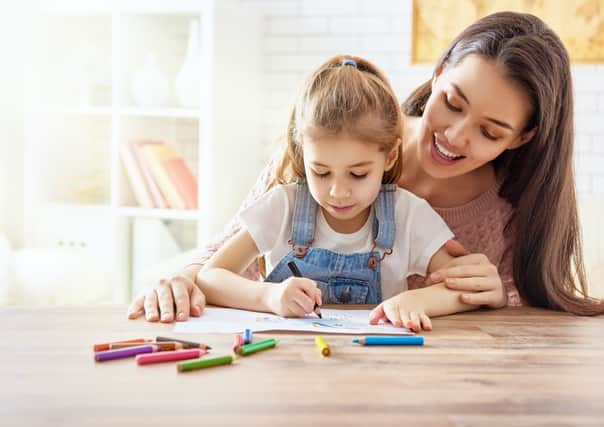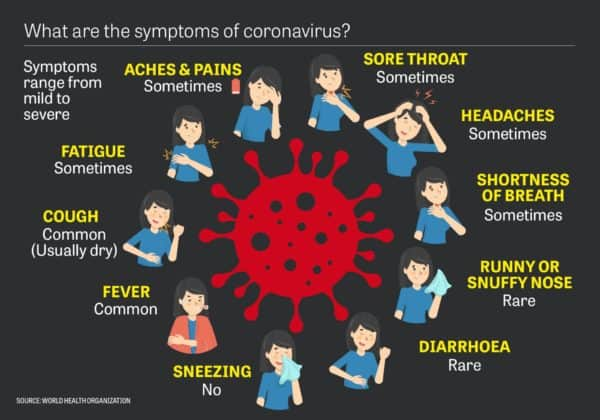These are the best resources for home learning in the case of school closures


Following Boris Johnson’s emergency COBRA meeting yesterday (12 March) some expected an announcement that UK schools would close temporarily.
But, although the prime minister has warned that new measures to delay the coronavirus outbreak will cause “severe disruption across our country for many months”, he stressed these restrictions should not be introduced too early.
Advertisement
Hide AdAdvertisement
Hide AdIn Scotland, Nicola Sturgeon also announced that the current advice is for schools, colleges and universities to remain open, for the time being.


At present, schools will only close if they are specifically told so - for example, if a student or staff member contracts the Covid-19 strain of coronavirus. This response differs to countries such as Ireland, Lithuania, Slovakia and Denmark, which all recently announced they would be temporarily shutting schools due to the virus outbreak.
However, due to the nature of this pandemic, we have learned that things can change very rapidly.In order to prepare parents and carers in the event of a school closure, here are some tips and online resources to support your child with their learning at home.
Which resources can I use to support my child at home?
Twinkl
Online educational publishers, Twinkl, have offered parents free access to all its resources for a month to support continued learning at home. All you need to do is enter UKTWINKLHELPS to get started.
Advertisement
Hide AdAdvertisement
Hide AdTwinkl also has a Parents Hub that has a number of different guides designed for parents to support them with different curricular areas.
Class Dojo
Class Dojo is a free app that connects teachers with students and parents to build classroom communities. Teachers can bring parents into the classroom experience by sharing photos, videos, announcements and instant messages with parents.
So, if your child’s school is temporarily closed, you can stay in touch with their teachers.
Sumdog
Online learning platform, Sumdog, has a number of engaging and challenging maths and literacy games that your child can use to enhance their learning at home.
Advertisement
Hide AdAdvertisement
Hide AdYour child’s teacher can also set homework challenges for them to track their progress. The games are designed for children to work at their own level.
Google Classroom
For older students, Google Classroom is a resource many teachers are using to upload resources, create deadlines, mark work and start discussions with their classes online. In the event of school closures, many students will be able to continue their lessons online.
Children’s University of Manchester
For kids who love science, the Children’s University of Manchester website is an excellent interactive resource in which your child can browse a number of different science topics which have a quiz at the end of each unit.
BBC Bitesize
BBC Bitesize is an excellent online resource that provides students help with revision and learning. Here you will find a number of free videos, step-by-step guides, activities and quizzes by level and subject on every subject for students aged from three to 16 and over.
Activity Village
Advertisement
Hide AdAdvertisement
Hide AdFor those of you who enjoy making crafts with your child at home, Activity Village is a great resource for ideas and templates to develop creativity at home.
If you are concerned about how Covid-19 will affect your child’s learning you can also chat to their teacher for advice on how to support their learning at home.
Coronavirus: the facts
What is coronavirus?
COVID-19 is a respiratory illness that can affect lungs and airways. It is caused by a virus called coronavirus.
What caused coronavirus?
The outbreak started in Wuhan in China in December 2019 and it is thought that the virus, like others of its kind, has come from animals.
How is it spread?
Advertisement
Hide AdAdvertisement
Hide AdAs this is such a new illness, experts still aren’t sure how it is spread. But.similar viruses are spread in cough droplets. Therefore covering your nose and mouth when sneezing and coughing, and disposing of used tissues straight away is advised. Viruses like coronavirus cannot live outside the body for very long.
What are the symptoms?
The NHS states that the symptoms are: a dry cough, high temperature and shortness of breath - but these symptoms do not necessarily mean you have the illness. Look out for flu-like symptoms, such as aches and pains, nasal congestion, runny nose and a sore throat. It’s important to remember that some people may become infected but won’t develop any symptoms or feel unwell.
What precautions can be taken?
Washing your hands with soap and water thoroughly. The NHS also advises to cover your mouth and nose with a tissue or your sleeve (not your hands) when you cough or sneeze; put used tissues in the bin immediately and try to avoid close contact with people who are unwell. Also avoiding touching eyes, nose and mouth unless your hands are clean.
Should I avoid public places?
Most people who feel well can continue to go to work, school and public places and should only stay at home and self isolate if advised by a medical professional or the coronavirus service.
What should I do if I feel unwell?
Advertisement
Hide AdAdvertisement
Hide AdDon’t go to your GP but instead call NHS 111 or look online at the coronavirus service that can tell you if you need medical help and what to do next.
When to call NHS 111
NHS 111 should be used if you feel unwell with coronavirus symptoms, have been in a country with a high risk of coronavirus in the last 14 days or if you have been in close contact with someone with the virus.
Sources: World Health Organisation and NHS